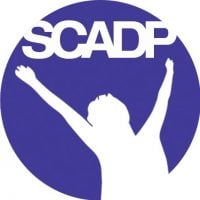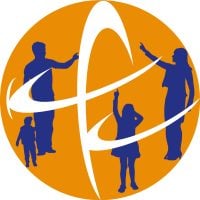Citrus Recovery Center
Drug Rehab Center in Orange, California
Citrus Recovery Center is a drug rehab facility in Orange, CA, offering comprehensive and individualized addiction treatment services accredited by NAATP, including detox, intervention, residential care, aftercare support, and sober-living/half-way houses.
Multiple patients have reported Citrus Recovery Center as permanently closed.
Research other rehabs in Orange, California, or get help finding an open facility.
About Citrus Recovery Center in California
Citrus Recovery Center, nestled in the serene city of Orange, California, is an established rehab known for its comprehensive care in treating alcoholism, drug addiction, opioid addiction, and substance abuse. With a strong Christian foundation, the center emphasizes a faith-based approach to recovery, offering a beacon of hope and healing to those entangled in the grip of addiction.
- Accredited by the National Association of Addiction Treatment Providers (NAATP), ensuring high standards of care
- Offers a wide range of services including detoxification, rehabilitation, and inpatient treatment tailored to individual needs
- Provides compassionate aftercare support and sober-living/halfway house programs to ease the transition into sober living
- Utilizes a faith-based approach to treatment, integrating spiritual healing with traditional therapeutic methods
Holding a prestigious certification from the NAATP, Citrus Recovery Center prides itself on delivering personalized and effective addiction treatment services. Their deep commitment to excellence in rehabilitation is matched by a dedicated focus on nurturing spiritual growth and recovery.
Specializing in addressing alcoholism, opioid addiction, drug addiction, and substance abuse, Citrus Recovery Center utilizes a multi-faceted treatment approach. Services range from detoxification to intensive inpatient care, adopting evidence-based therapies combined with Christian principles to guide individuals towards a path of sustained sobriety.
Genders
Ages
Modality
Additional
Accreditations
NAATP
Conditions and Issues Treated
Substance abuse creates problems that affect people in Orange, CA on many levels. First, substance abuse affects the individual who is abusing drugs or alcohol. This can result in health problems, including heart damage and overdose. Substance abuse also affects the user’s family, friends, co-workers, classmates, or peers. These people feel frustrated because they do not know how to help their loved ones struggling with addiction. At the same time, the addict cannot control his behavior. Lastly, friends and family members of addicts are affected financially by substance abuse.
The good news is that effective treatments can help prevent substance abuse or treat its effects on the user. These treatments, which include behavioral therapy and counseling sessions, target the underlying causes of substance abuse, helping users achieve sobriety so they can regain control over their lives. They also teach users to cope with stress in ways other than using drugs or alcohol.
Opioid addiction has become a significant health problem in the United States. When a person’s life becomes unmanageable because of an opioid addiction, treatment can help them get sober. Treatment includes medical care and counseling.
“With so many people struggling with opioid addiction, we need more care and attention for those who want to quit. Opioid addicts often take opioids when they experience a painful injury – that’s how the cycle starts! When someone begins taking their medication differently than prescribed or takes an excessive amount of drugs, it means they’re hooked on drugs and in danger of overdosing.
The most successful way to beat this is through detoxing from these types treatments at Citrus Recovery Center in . Most facilities start by using medical support during the process while providing counseling services; rehabilitation comes later on after treatment has been completed successfully.
Levels of Care Offered
This center offers a variety of custom treatment tailored to individual recovery. Currently available are Aftercare Support, Detox, Drug Rehab, Inpatient, Intervention, Residential, Sober-Living / Half-Way, with additional therapies available as listed below.
The first level of recovery is detox. It involves giving a person the opportunity to get the toxins out of their body safely. The individual receiving treatment at Citrus Recovery Center typically will get ill during detox, and they will often start using again to get rid of unpleasant emotions and complicated physical responses. It is why having a California medical professional present is so critical. A medical professional can make sure that patients do not start using again during detox and stay physically healthy during the process. They will also have treatment on a mental level to relieve their symptoms and guide them through the process.
Going to an inpatient rehab facility means living there while all aspects of addiction or co-occurring disorder get addressed. The treatment involves medical supervision, therapy, and future planning.
This type of rehabilitation provides a drug-free environment for people who struggle with chronic/long-term addiction without having access to drugs outside the center (or their own home). It takes away any distractions because they live there 24 hours per day. If someone is trying to break out old habits, which could lead them back into substance abuse, things like jobs or school can be put on hold until after they complete their stay to focus solely on recovery.
Sober living homes (abbreviated SLHs or sometimes sober houses ) are temporary housing for recovering addicts, most often those in early or mid stage recovery, who typically live in the home for 3 to 6 months.
The typical SLH functions as a halfway house, providing a stable living environment for addicts in recovery.
While at an SLH, residents typically meet with various therapists on site and attend regular 12-step meetings as well as other recovery group meetings.
Residential treatment programs are those that offer housing and meals in addition to substance abuse treatment. Rehab facilities that offer residential treatment allow patients to focus solely on recovery, in an environment totally separate from their lives. Some rehab centers specialize in short-term residential treatment (a few days to a week or two), while others solely provide treatment on a long-term basis (several weeks to months). Some offer both, and tailor treatment to the patient’s individual requirements.
Interventionism is a technique used to help an addict get clean and sober. The process begins with the addict’s family, friends, and co-workers gathering together to confront the addict about their addiction. This often happens when the addict is in the middle of a particularly bad bout of drug abuse.
The addict’s friends and family members are encouraged to share their feelings about the addict’s behavior with them, as well as what it’s doing to the addict and their loved ones. At first, the addict is typically resistant to this form of treatment because they feel it’s an intrusion on their private life. They may be upset or even angry at the interventionist for orchestrating this meeting. Over time, though, most addicts come to understand that their loved ones are only trying to help them.
During the intervention, the addict’s family and friends are encouraged to tell the addict how their drug use has affected their lives. The interventionist is there to help everyone organize their thoughts and communicate their message. They also help to ensure that the conversation doesn’t become aggressive or combative, which could put the addict on the defensive and make them reject the intervention.
This kind of treatment aims to get the addict in touch with their feelings about their addiction. They are encouraged to speak honestly about their drug use, as well as how it’s making them feel. They’re also asked to consider the consequences of their drug use and how it’s hurting their loved ones. The addict is allowed to see how their addiction has become a problem for everyone around them.
Without aftercare support, addicts can easily relapse back into addiction. It is crucial to integrate the addict back into society. Aftercare support should take place after outpatient treatment has ended.
There are a few different types of aftercare support that patients can seek after completing an inpatient treatment program:
- 12 Step Self-help groups (AA, NA)
- Therapeutic communities,
- Long-term, structured sober living arrangements
- Halfway houses (residential treatment centers)
Many different support groups exist for addicts to seek help after treatment. Some are more effective than others, depending on the person’s addiction, background, and other factors.
Therapies & Programs
Individual therapy is a form of counseling where you meet with a trained professional one-on-one. Meeting with a therapist in this setting allows for a personal and trusting relationship to be built. This allows the patient to open up about sensitive or private issues they may not feel comfortable discussing in a group. Individual therapy helps identify the root causes of your addiction, which can help prevent relapse.
Family therapy is often done alongside drug treatment to help addicts stay sober. The goal of family therapy for drug addiction is to create an environment where communication can happen without judgment, hostility, or blame. The therapist will sit with the family so they can learn how to communicate differently and provide new tools for dealing with emotions so that people don’t want to drink or do drugs. It’s important for families to focus on relapse prevention plans during treatment so that if the addict feels like they want to use again, they’ll know what steps they need to take together to prevent it from happening again in the future.
Group therapy sessions are another common addiction recovery service. These group sessions typically involve six to 12 addicts who meet regularly with a trained professional for support and guidance.
During these sessions, the group shares their experiences with one another and provides feedback that can help each member avoid relapse or overcome specific obstacles they are facing in their recovery process. With this type of support and guidance, addicts can feel like they are part of a community that understands their struggles and will help them get through the hard times.
Dialectical Behavior Therapy was developed in the 1980s to treat chronically suicidal individuals. It is a cognitive-behavioral therapy that combines standard DBT with strategies derived from Zen Buddhism, such as mindfulness training.
DBT has been adapted for use with other types of psychiatric problems, including eating disorders, substance abuse disorders, borderline personality disorder, posttraumatic stress disorder (PTSD), and other personality disorders. Dialectical Behavior Therapy is considered a psychosocial treatment of BPD. This means that while it can be used alone or in conjunction with drug treatments, DBT does not rely on medications to treat the disorder. Instead, DBT aims to help patients change their thinking and behavior.
Cognitive Behavioral Therapy (CBT) focuses on the underlying thoughts and behaviors that caused the problem of addiction in the first place and may cause a relapse. Negative feelings are common in drug abuse disorders, but they can lead to co-occurring disorders if not recognized. CBT involves strategies that help to change the behavior pattern by restructuring negative thoughts into positive ones. It helps to remove these feelings, and it provides long-term benefits. Also, CBT promotes self-awareness and self-control. It can be administered as a monotherapy or as part of combination therapy.
CBT can improve the patient’s mood, reduce drug cravings and boost success rates on treatment plans. Regular practice can help individuals handle negative attitudes, thoughts, and feelings without turning to drugs or alcohol. The core belief of Cognitive Behavioral Therapy (CBT) is that one’s moods, behaviors, and actions are all connected. Individuals can improve their quality of life using CBT. It helps addicts understand the patterns of thought and feelings that cause them to use drugs or alcohol and develop a healthy response.
It’s not as simple as quitting drinking or using drugs and expecting the hard part to be over. Many addicts in recovery have discovered that they need to improve skills such as time management, organization, communication, socialization, and self-esteem. Learning certain life skills can help those who are struggling with addiction.
Medical nutrition therapy for addiction helps patients at Citrus Recovery Center avoid “trigger” foods. Someone who craves alcohol may be sugar addicted. Eating a balanced diet with adequate protein, vegetables, and fruit can help reduce drinking urges.
MNT is a type of addiction treatment that teaches patients about healthy eating habits while counseling them. These sessions include meal planning, cooking demonstrations, shopping tips, grocery store tours, and food education.
Nicotine replacement therapy is a drug treatment that allows people to get the effects of nicotine without chewing or smoking. The therapy is often done with a patch, and doses of nicotine are reduced until nicotine is no longer needed. NRT helps smokers get nicotine into their system without resorting to smoking, and it has been shown to be an effective way to help people quit smoking. Coupling NRT with counseling and other means of support gives long-term smokers a better chance of removing their unhealthy habit.
Patient Experience
Experiential Therapy at Citrus Recovery Center
Drug addiction causes the formation of abnormal connections between neurons in the brain to form due to repeated exposure to drugs. These connections are responsible for addictive behaviors to drugs. Experiential therapy is done with patients individually and is different from traditional talk therapy. This therapy can help people revisit past traumas, heal, and move on in life in a more authentic way.
Experiential therapy uses activities to recreate experiences that may have caused trauma or negative emotions. These activities include role-playing, arts and crafts, animal care, music, or rock climbing. The individual will gradually experience calmness and love and change their perception positively through this therapy. Other than drug addiction, experiential therapy can be helpful for behavioral or eating disorders.
Payment Options Accepted
For specific insurance or payment methods please contact us.
Is your insurance accepted?
Ask an expert, call (888) 674-0062
Additional Details
Specifics, location, and helpful extra information.
Orange, California 92865 Phone Number(855) 456-0622 Meta DetailsUpdated April 15, 2024
Staff Verified
Citrus Recovery Center Patient Reviews
There are no reviews yet. Be the first one to write one.
Orange, California Addiction Information
More than 3 million of California's citizens are addicted to illegal drugs. Almost 800,000 people use hard drugs, almost 5 million use marijuana, and another 2.1 million abuse alcohol every year. Other substance abuse issues such as binge drinking and teen drug use are also common. Many illegal drugs such as cocaine, heroin, methamphetamine, and marijuana are smuggled into the state from Mexico.
The drug addiction problem in Orange, CA, is significant. Almost 350,000 were for addiction to cocaine or methamphetamine overall. Not only does drug addiction and abuse cause problems for the people who are addicted or abusing drugs, but it also causes problems for their families and friends. When looking for a drug rehab program in Orange, California, it is important to consider their needs and preferences.
Treatment in Nearby Cities
- Fullerton, CA (5.2 mi.)
- Garden Grove, CA (5.5 mi.)
- Hanford, CA (200.9 mi.)
- Ramona, CA (78.0 mi.)
- Chatsworth, CA (52.7 mi.)
Centers near Citrus Recovery Center
The facility name, logo and brand are the property and registered trademarks of Citrus Recovery Center, and are being used for identification and informational purposes only. Use of these names, logos and brands shall not imply endorsement. RehabNow.org is not affiliated with or sponsored by Citrus Recovery Center.






